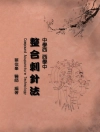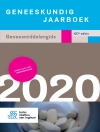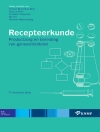‘Like its predecessor, the book remains one of the best sources of rehabilitation practice preparation for students and the most enlightened guide for rehabilitation professionals.’ —Nan Zhang Hampton , Ph D, CRC Department of Counseling and School Psychology University of Massachusetts
Medical Aspects of Disability has continually been the go-to resource for health care professionals, educators, and students. Now in its fourth edition, this landmark volume has been substantially revised, updated, and expanded-comprehensively describing aspects of disability pertaining to medical conditions commonly encountered in rehabilitation settings.
This edition discusses important topics that have come to the forefront of medical rehabilitation and disability, covering disabling conditions and disorders not only from clinical but also functional and psychological perspectives. Chapter authors, among the most widely respected authorities in their respective fields, provide comprehensive guides on what to expect and how to manage each medical issue, discussing the causative agents, classification, pain management, psychological factors, and much more.
Emerging Topics Discussed:- Social work in physical medicine
- The information revolution, disability, and assistive technology
- Complementary and alternative medicine
- Trends in medical rehabilitation delivery and payment systems
- Legislation and rehabilitation professionals
- Telerehabilitation: solutions to distant and international care
Disabling Conditions and Disorders Included:
- Geriatric rehabilitation
- Limb deficiency
- Organ transplantation
- Cardiovascular disorders
- Traumatic brain injury
- Diabetes mellitus
- Epilepsy
- Visual impairments
- Peripheral vascular disorders
- Rehabilitation in cancer patients
- AIDS and HIV
- Rehabilitation in burns
- Speech, language, hearing, and swallowing disorders
Содержание
‘
Part I An Introduction to Key Topics and Issues
Comprehensive Rehabilitation
Part II: Disabling Conditions and Disorders
Acquired Immune Deficiency Syndrome and Human Immunodeficiency Virus
Alzheimer’s Disease//Dementia
Traumatic Brain Injury
Burn Injuries
Cancers
Cardiovascular Disorders
Chronic Pain Syndromes
Diabetes Mellitus
Epilepsy
Speech, Language, Hearing, and Swallowing Disorders
Hematologic Disorders
Developmental Disabilities
Neuromuscular Disorders
Musculoskeletal Disorders
Pediatric Disorder
Peripheral Vascular Disorders
Psychiatric Disabilities
Pulmonary Disorders
Chronic Kidney Disease
Rheumatic Diseases
Spinal Cord Injury
Stroke
Visual Impairments
Part III Special Topics
Integrative Medicine and Its Relationship to Rehabilitation
Rehabilitation Nursing
Educating Patients Toward Independence
Social Work and Rehabilitation
Telerehabilitation — Solution to Distant and International Care
The Computer Revolution and Assistive Technology
Trends in Medical Rehabilitation Delivery and Payment Systems
Legislation and Rehabilitation Professionals
Accreditation — A Quality Framework in the Consumer-Centric Era
Outcomes Measurement and Quality Improvement in an Acute Inpatient Rehabilitation Setting
Geriatric Rehabilitation
Organ Transplantation
Research Directions
Limb Deficiency
Об авторе
Alex Moroz, MD, is associate professor, Department of Rehabilitation Medicine, New York University School of Medicine.












